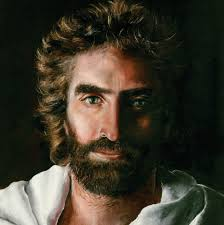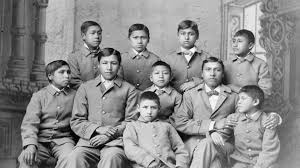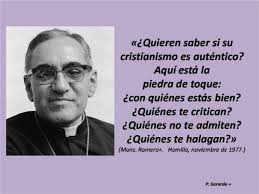_________________________________________
If one
understands the true presence of Christ in the Eucharist, how could any
Catholic not be here at Mass each and every week to receive Jesus?
This
is a question we should all reflect on this weekend.
The
sad truth is far too many Catholics have walked away from the faith in recent
years.
COVID
interrupted our weekly practice of faith. Many of our fellow parishioners never returned
to Masses after the pandemic was over. Some got too comfortable joining Mass
online or just fell out of the weekly Mass habit. Many of these people never
returned to Church.
But
this is only the most recent example of people walking away from the Catholic
faith.
I’m
not telling you something you don’t already know. Many of us have family
members who have left the faith. There are many reasons people leave the Church.
The
true culprit for these sad departures may be something revealed in research just
prior to the pandemic.
A 2019
Pew Research poll found that only a third of all Catholics believe in the real
presence of Jesus in the Eucharist. Two thirds only believe Jesus is
symbolically present in Holy Communion. This means 70% of Catholics do not
understand the true meaning of Eucharist. This is a problem for the future of
our faith.
How is
it that 60 years after Vatican II many U.S. Catholics no longer believe in the
holiest quality of Eucharist?
Vatican
II declared that the Eucharist is the source and summit of the Christian life.
It is the beginning and the end. The be-all and end-all for our Church and our
faith.
Eucharist
comes from the Greek word for “thanksgiving” and refers to Holy
Communion, or the Most Holy Body and Blood of Christ,
which is consumed during weekly or daily Eucharistic Celebrations at
a Catholic Mass.
The
Body and Blood of Christ is the central theme of the Last Supper dialogue we
heard in the Gospel on Holy Thursday at Mass.
As
Jesus said,
"Take
it; this is my body…
This is my blood of the covenant,
which will be shed for many.”
We hear echoes of this in St. Paul’s Letter to the
Corinthians today.
Why is it that so many Catholics aren’t here with us every
weekend?
I’ve
always found it fascinating. People from developing nations, people some might
call “the poor,” get the real presence of Jesus in the Eucharist instinctively.
People from developed or rich countries don’t. It’s proven in statistics of
Church attendance in Europe, Canada and the United States.
Blessed
are the poor. For they get it.
Perhaps
our comfortable affluence has evaporated the need to encounter Jesus for some
of our sisters and brothers.
Perhaps
our poverty is one of belief, one of imagination, one of not letting Jesus’
words really soak in to our very being.
Bishop
Robert Barron tells a story of once serving Holy Communion at the Vatican at a
large outdoor Mass of people from all over the world. As he was making his
through the crowd to his spot to serve Holy Communion, he encountered dozens of
outstretched hands of people begging and pleading for Eucharist like a starving
person.
Do we
hunger for the Eucharist like that? Do we approach Jesus with begging bowl
hands? Or do we just walk up, entitled, and nonchalantly receive what we may or
may not believe in?
Great
food for thought (so to speak) this weekend.
Transubstantiation
is the term used by our Church for the conversion of simple bread and wine into
the Body and Blood of Christ.
Epiclesis
is the term used by our Church for the exact moment the Holy Spirit is called
upon to consecrate Holy Communion.
As
Bishop Barron says, “If we are just dealing with a bland symbol, who
cares.”
20th
Century Catholic author Flannery O’Connor has a famous quote about the
Eucharist. Once when speaking with a lapsed Catholic who told her at a dinner
party, “You know I think the Eucharist is a wonderful symbol.” O’Connor said,
“If it’s only a symbol, I say to hell with it.”
Bishop
Barron says, “(Flannery O’Connor) gives voice to something that is absolutely
universal in our great tradition, across space and across time, there’s
something more in the Eucharist than the merely symbolic. And so (for the) 70%
of .. Catholics in our Pew Forum study, we’ve got a problem if we are not
teaching this truth.”
Bishop
Barron says we have not been effective with this teaching since Vatican II. In
other words, we Catholics have a lot of work to do to help our sisters and
brothers to understand this central truth of our faith.
Jesus produces
a miracle today in the Gospel. We too must learn to see the Eucharist as a
miracle for our souls.
Jesus
is calling us all to the table of plenty to find communion with the divine; to
find communion with him, the Creator of our very being, and the Holy Spirit.
And to find communion with ourselves.
In the
Gospel, the disciples are doubtful Jesus can feed a crowd of five thousand men
(not to mention the women and children with them) with only five loaves and two
fish.
Far
too many Catholics may be doubtful about the true presence of Jesus in the
Eucharist. But this is the way Christ enters into our lives and can change us
forever. If only we believe.
So,
how do we fix it?
Sure,
we can point our fingers at the hierarchy and blame them for our lack of faith.
The abuse scandals did irreparable harm to our Church’s credibility.
Thankfully,
with the Safe Environment, Virtus, background checks and psychological testing,
we can pray and hope this will never happen again.
But we
(We, too,) can do our part to repair what is broken. We can help others grow
closer to Christ by growing closer to Christ ourselves, by growing stronger in
our belief in the real presence of Jesus in the Eucharist, by growing more
demonstrable in mirroring Christ in how we speak, act and serve others
(especially those on the margins) as a sign of our Communion with the divine.
I am
reminded of a powerful experience with our high schoolers during my time as
Campus Minister at Archbishop Murphy High School. The young people found Christ
in the service of the poor, those on the margins.
Whenever
they would serve those living in homeless shelters, or living on the streets,
they encountered Jesus in a powerful way.
Our
MercyWatch team has the same experience each and every day we serve. As do
those who serve at our Hot Meal each Monday, or at St. Vincent de Paul or
Prepares.
The
Eucharist is the fuel for this type service; sustenance for brininging Christ
into the world.
My
sisters and brothers, this is the truth about the real presence of Jesus in
Holy Communion and in the service of others.
This
is what we solemnly celebrate this weekend.
HOMILÍA
– El Santísimo Cuerpo y Sangre de Cristo 2025
Si uno
entiende la verdadera presencia de Cristo en la Eucaristía, ¿cómo podría un
católico no estar aquí en la Misa cada semana para recibir a Jesús?
Esta
es una pregunta sobre la que todos deberíamos reflexionar este fin de semana.
La
triste realidad es que demasiados católicos se han alejado de la fe en los
últimos años.
El
COVID interrumpió nuestra práctica semanal de la fe. Muchos de nuestros
hermanos y hermanas en la parroquia nunca regresaron a las Misas después de la
pandemia. Algunos se acostumbraron a participar en Misa en línea o simplemente
perdieron el hábito semanal de asistir. Muchas de estas personas nunca
regresaron a la Iglesia.
Pero
este es solo el ejemplo más reciente de personas alejándose de la fe católica.
No les
estoy diciendo algo que no sepan ya. Muchos de nosotros tenemos familiares que
han dejado la fe. Hay muchas razones por las que la gente deja la Iglesia.
Pero
el verdadero culpable de estas tristes salidas puede haber sido revelado en una
investigación justo antes de la pandemia.
Una
encuesta del Pew Research del 2019
encontró que solo un tercio de los católicos creen en la presencia real de
Jesús en la Eucaristía. Dos tercios creen solamente que Jesús está presente de
forma simbólica en la Comunión. Esto significa que el 70% de los católicos no
entienden el verdadero significado de la Eucaristía. Y eso es un problema para
el futuro de nuestra fe.
¿Cómo
es posible que, 60 años después del Concilio Vaticano (dos) II,
muchos católicos en Estados Unidos ya no crean en lo más sagrado de la
Eucaristía?
El
Vaticano II declaró que la Eucaristía es la fuente y la cumbre de la vida
cristiana. Es el principio y el fin. El todo de nuestra Iglesia y de nuestra
fe.
La
palabra “Eucaristía” viene del griego y significa “acción de gracias”; se
refiere a la Santa Comunión, o al Santísimo Cuerpo y Sangre de Cristo, que
consumimos durante las Celebraciones Eucarísticas diarias o semanales en la
Misa católica.
El
Cuerpo y la Sangre de Cristo son el tema central del diálogo de la Última Cena
que escuchamos en el Evangelio del Jueves Santo.
Como
dijo Jesús:
“Tomad,
esto es mi cuerpo…
Esta es mi sangre, sangre de la alianza,
que será derramada por muchos.”
Escuchamos
ecos de estas palabras hoy en la Carta de San Pablo a los Corintios.
¿Por
qué tantos católicos no están aquí con nosotros cada fin de semana?
Siempre
me ha parecido fascinante. Personas de países en desarrollo —personas que
algunos podrían llamar “los pobres”— comprenden de manera instintiva la
presencia real de Jesús en la Eucaristía. Las personas de países desarrollados
o ricos no lo hacen. Esto se refleja en las estadísticas de asistencia a Misa
en Europa, Canadá y Estados Unidos.
Bienaventurados
los pobres, porque ellos sí lo entienden.
Tal
vez nuestra comodidad material ha hecho que algunos de nuestros hermanos y
hermanas ya no sientan la necesidad de encontrarse con Jesús.
Tal
vez nuestra pobreza es de fe, de imaginación, de no permitir que las palabras
de Jesús realmente penetren hasta lo más profundo de nuestro ser.
El
Obispo Robert Barron cuenta una historia sobre cuando distribuyó la Comunión en
el Vaticano durante una gran Misa al aire libre con personas de todo el mundo.
Mientras se abría paso entre la multitud para llegar a su lugar, encontró
docenas de manos extendidas, suplicando por la Eucaristía como alguien que
muere de hambre.
¿Nosotros
anhelamos la Eucaristía de esa manera? ¿Nos acercamos a Jesús con manos vacías
y corazón suplicante? ¿O simplemente nos acercamos como si tuviéramos derecho,
recibiendo con indiferencia algo en lo que puede que ni siquiera creamos?
Gran
tema para reflexionar este fin de semana.
“Transubstanciación”
es el término que nuestra Iglesia usa para describir la conversión del pan y el
vino en el Cuerpo y la Sangre de Cristo.
“Epíclesis”
es el término para el momento exacto en que el Espíritu Santo es invocado para
consagrar la Comunión.
Como
dice el Obispo Barron: “Si sólo estamos hablando de un símbolo sin poder, ¿a
quién le importa?”
La
escritora católica del siglo XX, Flannery O’Connor, tiene una famosa
frase sobre la Eucaristía. Una vez, hablando con una católica que se había
alejado de la fe y le dijo: “Yo creo que la Eucaristía es un símbolo muy
bonito”, O’Connor respondió: “Si es solo un símbolo, entonces al diablo
con él.”
El
Obispo Barron dice: “Flannery O’Connor da voz a algo que es universal en
nuestra gran tradición: a través del tiempo y del espacio, siempre ha habido
algo más en la Eucaristía que lo meramente simbólico. Así que, si el 70% de los católicos en el estudio de Pew Forum no creen en esto,
tenemos un problema si no estamos enseñando esta verdad.”
El
Obispo Barron afirma que no hemos sido efectivos en esta enseñanza desde el
Vaticano II. En otras palabras, nosotros como católicos tenemos mucho
trabajo por hacer para ayudar a nuestras hermanas y hermanos a entender esta
verdad central de nuestra fe.
Jesús
realiza un milagro hoy en el Evangelio. Nosotros también debemos aprender a ver
la Eucaristía como un milagro para nuestras almas.
Jesús
nos llama a todos a la mesa abundante para encontrar comunión con lo divino;
para encontrar comunión con Él, el Creador de nuestro propio ser, y con el
Espíritu Santo. Y para encontrar comunión con nosotros mismos.
En el
Evangelio, los discípulos dudan que Jesús pueda alimentar a una multitud de
cinco mil hombres (sin contar a las mujeres y niños) con solo cinco panes y dos
pescados.
Demasiados católicos hoy dudan también de la verdadera presencia de Jesús en la
Eucaristía. Pero esta es la manera en que Cristo entra en nuestras vidas y
puede transformarnos para siempre. Si tan solo creemos.
Entonces,
¿cómo lo solucionamos?
Nosotros
también podemos hacer nuestra parte para reparar lo que está roto. Podemos
ayudar a otros a acercarse más a Cristo, acercándonos nosotros más a Él.
Fortaleciendo nuestra creencia en la presencia real de Jesús en la Eucaristía,
y siendo más visibles en reflejar a Cristo en la manera en que hablamos,
actuamos y servimos a los demás (especialmente a los marginados) como señal de
nuestra Comunión con lo divino.
Recuerdo
una experiencia poderosa con nuestros jóvenes de preparatoria durante mi tiempo
como ministro de campus en Archbishop Murphy High School. Los jóvenes
encontraban a Cristo al servir a los pobres, a los marginados.
Siempre
que servían en albergues o en la calle, se encontraban con Jesús de una forma
muy profunda.
Nuestro
equipo de MercyWatch vive esa experiencia cada día que sirve. Igual que
quienes ayudan en nuestras Comidas Calientes de los lunes, o en San Vicente de
Paúl, o en el programa Prepares.
La
Eucaristía es el combustible de este tipo de servicio; el alimento para llevar
a Cristo al mundo.
Mis
hermanas y hermanos, esta es la verdad sobre la presencia real de Jesús en la
Sagrada Comunión y en el servicio a los demás.
Esto
es lo que celebramos solemnemente este fin de semana.













